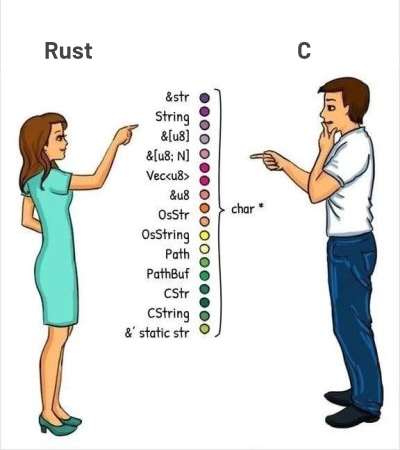this post was submitted on 25 Jan 2024
24 points (80.0% liked)
C Programming Language
1010 readers
1 users here now
Welcome to the C community!
C is quirky, flawed, and an enormous success.
... When I read commentary about suggestions for where C should go, I often think back and give thanks that it wasn't developed under the advice of a worldwide crowd.
... The only way to learn a new programming language is by writing programs in it.
- irc: #c
🌐 https://en.cppreference.com/w/c
founded 2 years ago
MODERATORS
you are viewing a single comment's thread
view the rest of the comments
view the rest of the comments

yeah if there's a popular "modern replacement for C" it'd be Go, similar procedural syntax with some functional features + great stdlib + static linking by default + easier concurrency + GC, but the new memory arenas feature looks like they're open to change and it's moving away from that dumbed down language for Google's junior devs it used to be known as
I find Go a joy to maintain long term due to the high readability and stability of the language and standard libraries. In that respect I guess it isn't that dissimilar to classic languages like C or Pascal which can be used to write systems that are maintainable for many years.
On the downside Go has some questionable design decisions. Null pointers and multi-value result, err returns are the result of an inadequate type system. It should not be impossible to dereference a null pointer or access the result if there is an error. With discipline problems don't crop up that often but this is a solved problem in language design and pushes work onto the programmer that should be handled in the language.
Even with such serious deficiencies Go is still arguably one of the better alternatives to dynamic language like Python of Javascript and gets you most of the benefits of static languages without too much complexity. Having a runtime and garbage collection prevents Go use in libraries consumed by C and other languages and the overhead for calling into C is high. That disqualifies it as a modern C replacement.
The more I play with Zig, the more I like it. I don't think I could use it for anything I had to support at the moment. Realistically you are forced to develop live at head. Active third party dependencies often won't compile against stable versions. There aren't a lot of native libs yet but it really feels like it inherits all of C. There is a lot of stuff to like but it will be a more compelling language when it stabilizes.
I hated the first nine words of this comment, but agree with everything else
Zig also seems interesting. I'm definitely a fan of what I've seen of their error handling. Intercompatibility with C (no FFI required) also sounds tempting, especially if I already had a legacy C codebase I wanted to migrate.